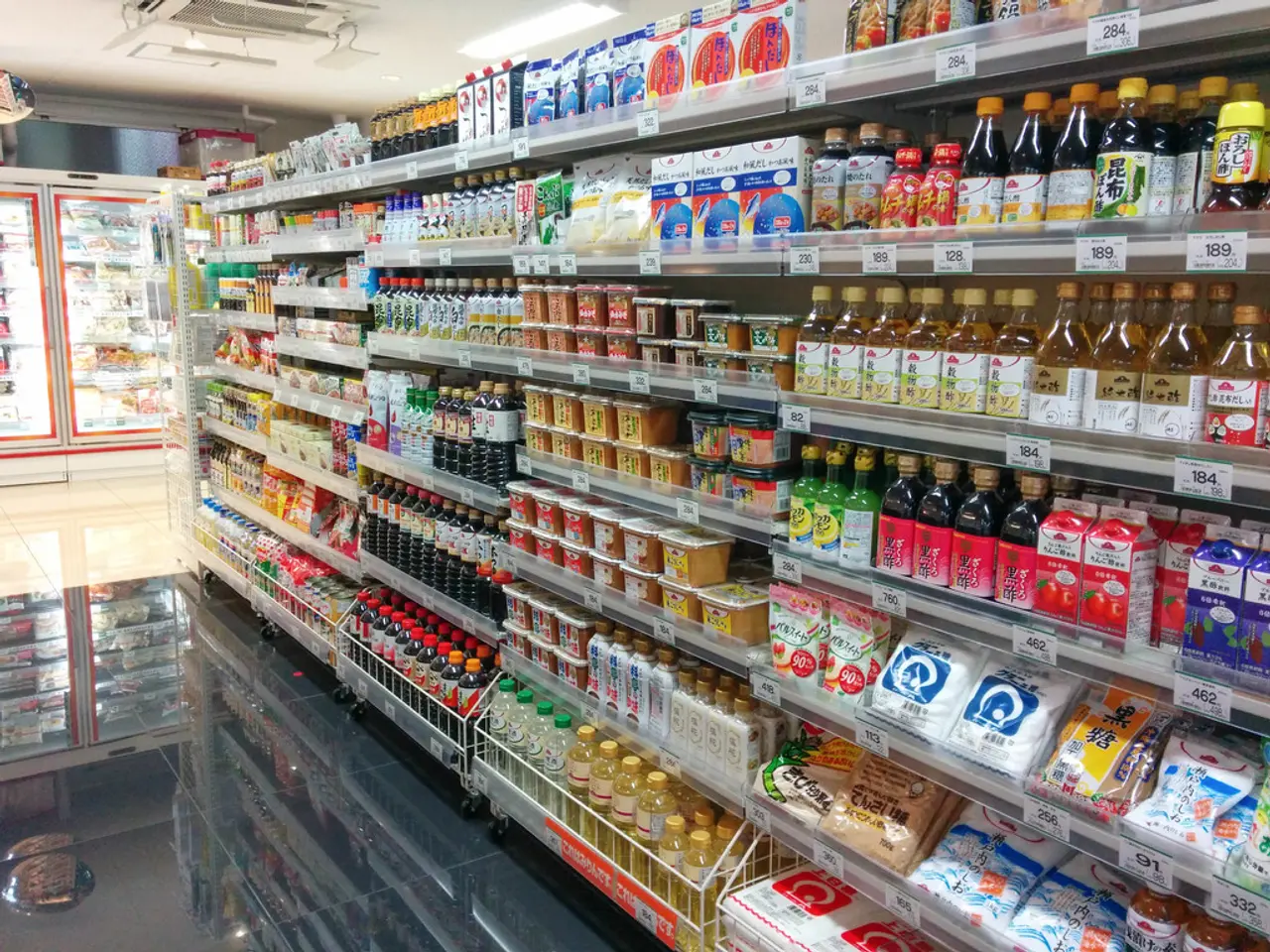Anticipated Timeline for Price Hikes due to Tariffs: Industry Experts Clarify
In a recent social media post, former President Donald Trump claimed that tariffs have not caused inflation and that consumers are not bearing the brunt of these taxes. However, economists paint a different picture.
The tariffs, particularly those imposed on imported goods, have been causing ripples in various sectors, with importers of perishable foods like vegetables facing an especially acute challenge due to their inability to stockpile products ahead of tariffs.
This has led to warnings from major retail chains, including Walmart, about potential price increases as a means of offsetting tariff-related costs. Back-to-school shoppers may notice a jump in apparel prices as importers weather these tariffs.
The Yale Budget Lab predicts that the average household will be hit with an additional $2,400 this year due to Trump's tariffs. Core inflation, which measures changes in the prices of goods and services excluding food and energy, increased by 3.1% over the year ending in July, a slight uptick from the previous month. Economists expect inflation to become more pronounced in the coming months.
Wholesale prices soared much faster than expected last month, leaving producers on the hook for higher costs. Some economists attribute this, in part, to tariffs.
The impact of tariffs on consumer prices is not happening all at once, but rather at a trickle, affecting various categories of goods at different times and to different extents. As stockpiled goods run out and companies' profits diminish, economists believe that prices will be passed onto the consumer.
Car buyers could see a price hike for new models as soon as this fall due to tariffs. Firms may seek to keep prices low and sacrifice some profits in an effort to protect their share of a given market, but eventually, they will need to ease the burden.
The overall inflation rate stands at 2.7%, below the 3% rate in January, before Trump took office. Despite the marginal tariff-induced price increases so far, economists have expressed concerns about a surge in prices for everyday products like sneakers, board games, and tomatoes.
The tariffs have increased the average effective tariff rate to 18.6%, the highest since 1934, according to the Yale Budget Lab. The automotive industry has been particularly hard hit, with companies like Ford, Volkswagen, General Motors, and Stellantis each reporting over $1 billion in losses due to tariffs over a recent three-month period.
As the Trump administration continues to undergo live updates, with Trump calling for a Federal Reserve governor to resign (Note: This is not a fact, but a reference to another article), the long-term effects of the tariffs on consumer prices remain to be seen.
Read also:
- President von der Leyen's address at the Fourth Renewable Hydrogen Summit, delivered remotely
- Unveiling Innovation in Propulsion: A Deep Dive into the Advantages and Obstacles of Magnetic Engines
- Intensified farm machinery emissions posing challenges to China's net-zero targets
- EU Fuel Ban Alerts Mercedes Boss of Potential Crisis








